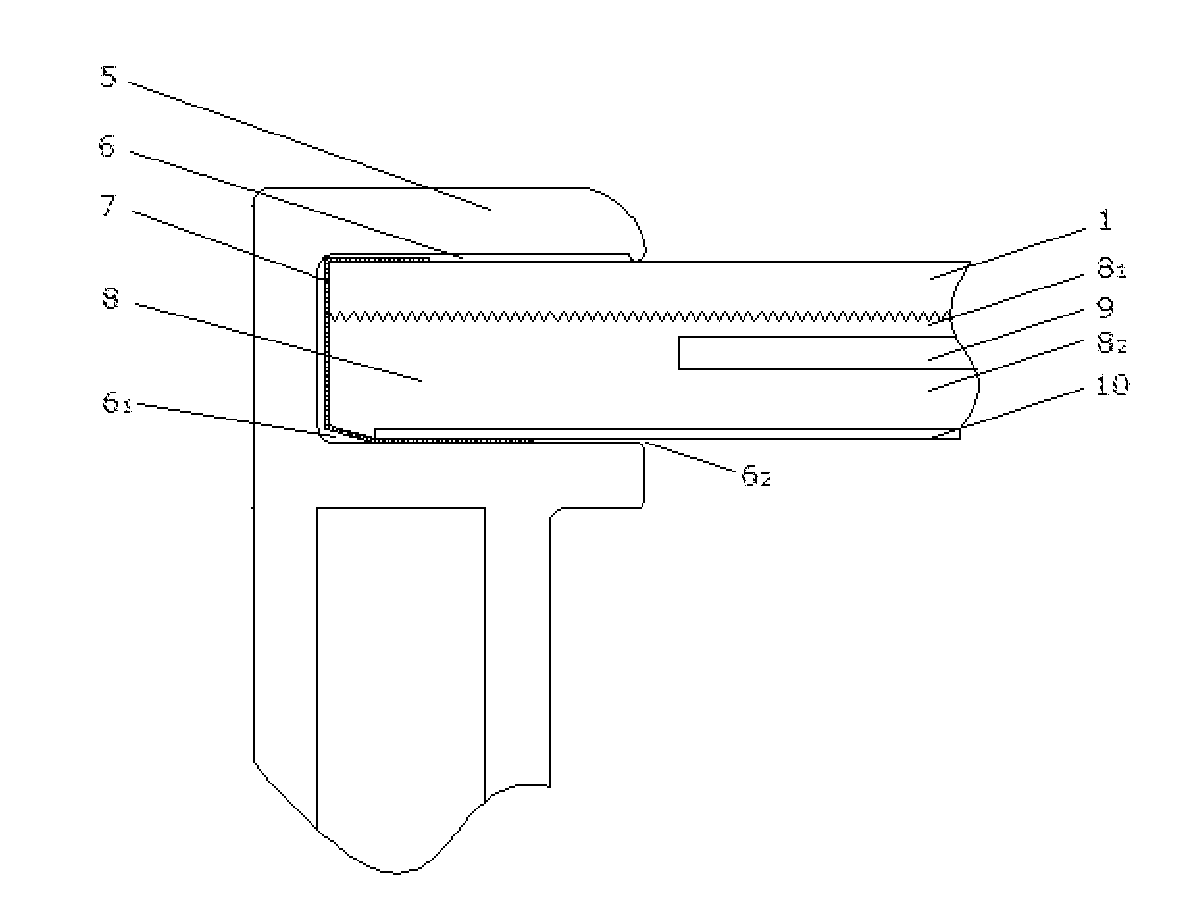Method for insulating aluminum backboard of photovoltaic
- Summary
- Abstract
- Description
- Claims
- Application Information
AI Technical Summary
Benefits of technology
Problems solved by technology
Method used
Image
Examples
Embodiment Construction
[0025]A method for insulating an aluminum backboard of a photovoltaic module (as shown in FIG. 1, FIG. 2 and FIG. 3), comprising the following steps:
[0026](1) shearing the aluminum backboard such that both length and width of the aluminum backboard 2 are 4˜5 mm smaller than those of the coated toughened glass 1;
[0027](2) forming a square aperture 3 at the position of the electrode lead 4 of the aluminum backboard 2;
[0028](3) composing and laying the module components (in a sequence of: coated toughened glass 1, EVA81, cell 9, EVA82 and aluminum backboard 10), wherein EVA81 and EVA82 form an EVA layer 8), and insulating the square aperture 3;
[0029](4) laminating the superimposed module components;
[0030](5) trimming the laminated piece;
[0031](6) wrapping the trimmed laminated piece around the edges with an insulation tape 7;
[0032](7) framing up the wrapped laminated piece with an aluminum frame 5 filled with silica gel 6 (comprising silica gel 61 and 62 in the figure); and installing ...
PUM
 Login to View More
Login to View More Abstract
Description
Claims
Application Information
 Login to View More
Login to View More - R&D
- Intellectual Property
- Life Sciences
- Materials
- Tech Scout
- Unparalleled Data Quality
- Higher Quality Content
- 60% Fewer Hallucinations
Browse by: Latest US Patents, China's latest patents, Technical Efficacy Thesaurus, Application Domain, Technology Topic, Popular Technical Reports.
© 2025 PatSnap. All rights reserved.Legal|Privacy policy|Modern Slavery Act Transparency Statement|Sitemap|About US| Contact US: help@patsnap.com



